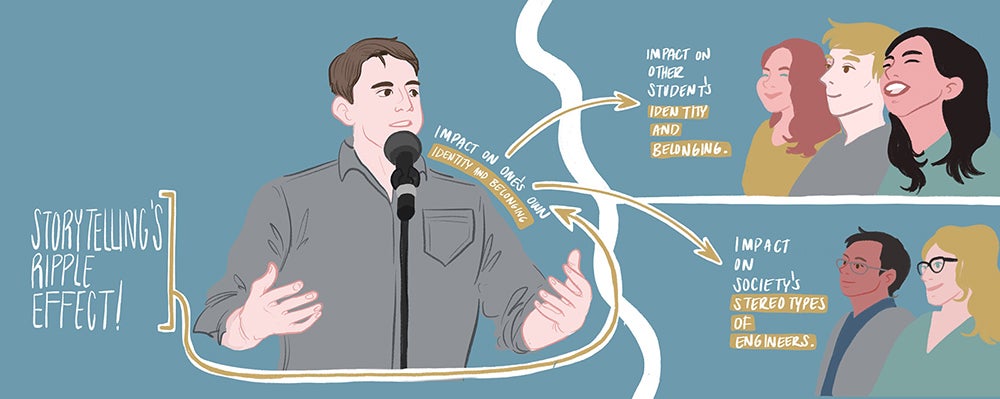The National Science Foundation awarded Krishna Pakala a $595,444 grant to explore storytelling curriculum intervention as a transformative approach to science, technology, engineering and mathematics teaching. The project is titled “Embedding Personal Narratives in Engineering Courses to Improve Engineering Student Success.”
Pakala, an assistant professor with the Department of Mechanical and Biomedical Engineering in the College of Engineering, leads the project to develop, implement, and examine a theoretically-informed storytelling intervention in conjunction with The Story Collider into the College of Engineering curriculum.

Pakala will work with Anne Hamby, assistant professor Department of Marketing; Eric Jankowski, associate professor Micron School of Materials Science and Engineering; and Sara Hagenah, assistant professor Department of Curriculum, Instruction and Foundational Studies.
“All of our stories matter. To honor those stories, we have an obligation to support our students so that they can serve their communities and their families,” Pakala said. “The COVID-19 pandemic has only intensified inequities and has negatively impacted national rates of college student persistence and retention.”
The research team plans to use the grant to build upon the team’s prior work which demonstrated the potential of narrative pedagogical approaches in improving students’ persistence in the major and graduation rates.
“I’m so thankful to the thermodynamics students, StoryBoard community, ASSERT community, and Story Collider staff, whose enthusiasm and work over the past four years laid the foundation for this successful proposal,” Jankowski said.
In addition to the collaboration with the Story Collider, the project also aligns with the National Science Foundation’s Improving Undergraduate STEM Education initiative. Traditionally, individual reflection and storytelling are typically not included in engineering curriculum as the focus is on the application of scientific knowledge.
The project will identify story themes which are associated with the most substantial impact on students’ engineering identity, sense of belonging, and student success.
“Our goal is to see if we can bring stories about overcoming challenges to the foreground of students’ minds, so that it shapes their self-view in a positive way,” Hamby said. “While many appreciate the power of hearing a good story, telling stories about ourselves can shape how we see ourselves. We expect sharing these stories with others will amplify the effect.”
The research team will generate new knowledge about why storytelling assignments enhance student success, helping expand research on narrative identity and efforts to refine storytelling assignments to maximize influence on engineering students’ self-view.
Pakala and the research group believe this project will enhance students’ professional engineering identity and sense of belonging in the major, which are critical to students’ success, longevity, and future professional performance. Additionally, the research will integrate with other storytelling initiatives currently underway at Boise State.
“Our interdisciplinary research team believes that this project will act as a catalyst for Institutional and Community Transformation,” Pakala said. “Boise State is uniquely positioned as an institutional home for this research owing to a culture of curricular innovation and commitment to fostering a thriving community. Our work will support Boise State’s strategic plan: Blueprint for success.”
-By Jamie Fink